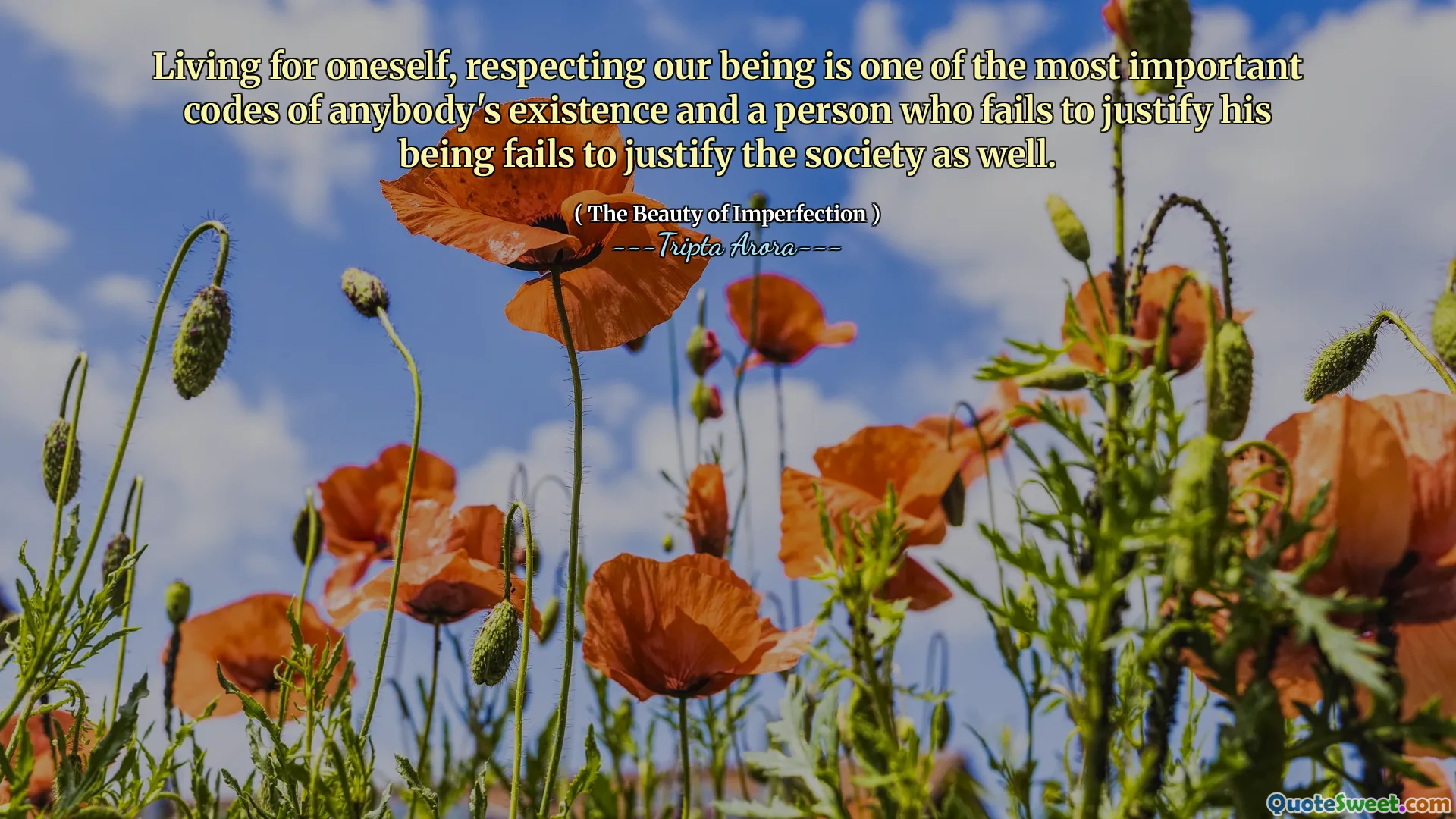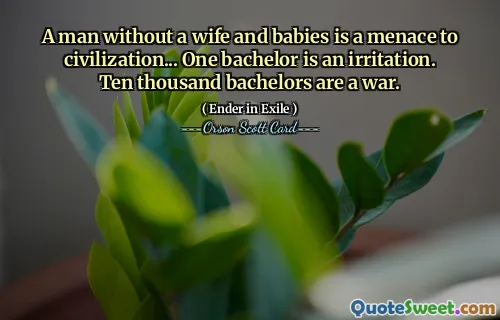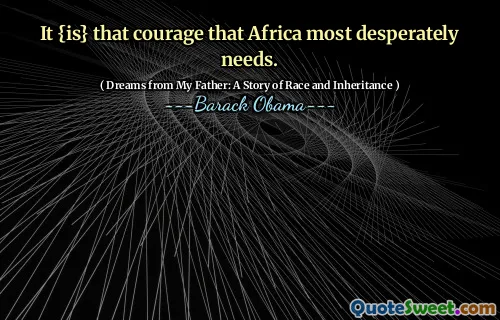
Living for oneself, respecting our being is one of the most important codes of anybody's existence and a person who fails to justify his being fails to justify the society as well.
This quote highlights the essential balance between self-awareness and social responsibility. It underscores the idea that true fulfillment begins from within — when individuals recognize and honor their own worth, values, and unique identities. Living authentically requires one to prioritize self-respect and understanding, which serve as the foundation for contributing meaningfully to society. When a person neglects their own wellbeing or fails to validate their existence, it can lead to a disconnect not just with oneself but also with the community. Self-justification isn't about selfishness but about embracing one's intrinsic worth with integrity and confidence.
The broader implication here is that societal progress depends largely on individuals who have achieved a sense of self-awareness and self-respect. When people are clear about their purpose and value, they are better equipped to serve their communities with authenticity and commitment. Conversely, a failure to justify one’s existence may manifest as apathy, superficiality, or even destructive behavior, which hinder societal growth.
Moreover, the quote suggests that personal development and societal development are intertwined. Respecting oneself—and by extension, respecting others—embodies humility and acceptance, enabling a culture of empathy, cooperation, and mutual support. Ultimately, embracing this principle encourages us to seek continuous self-improvement, to contribute positively, and to live lives that are honest and true to our core values.
This reflection aligns with the philosophy that individual well-being and societal harmony are mutually reinforcing — when we honor ourselves, we naturally extend that respect to others, creating a collective environment where genuine growth and understanding can flourish.





